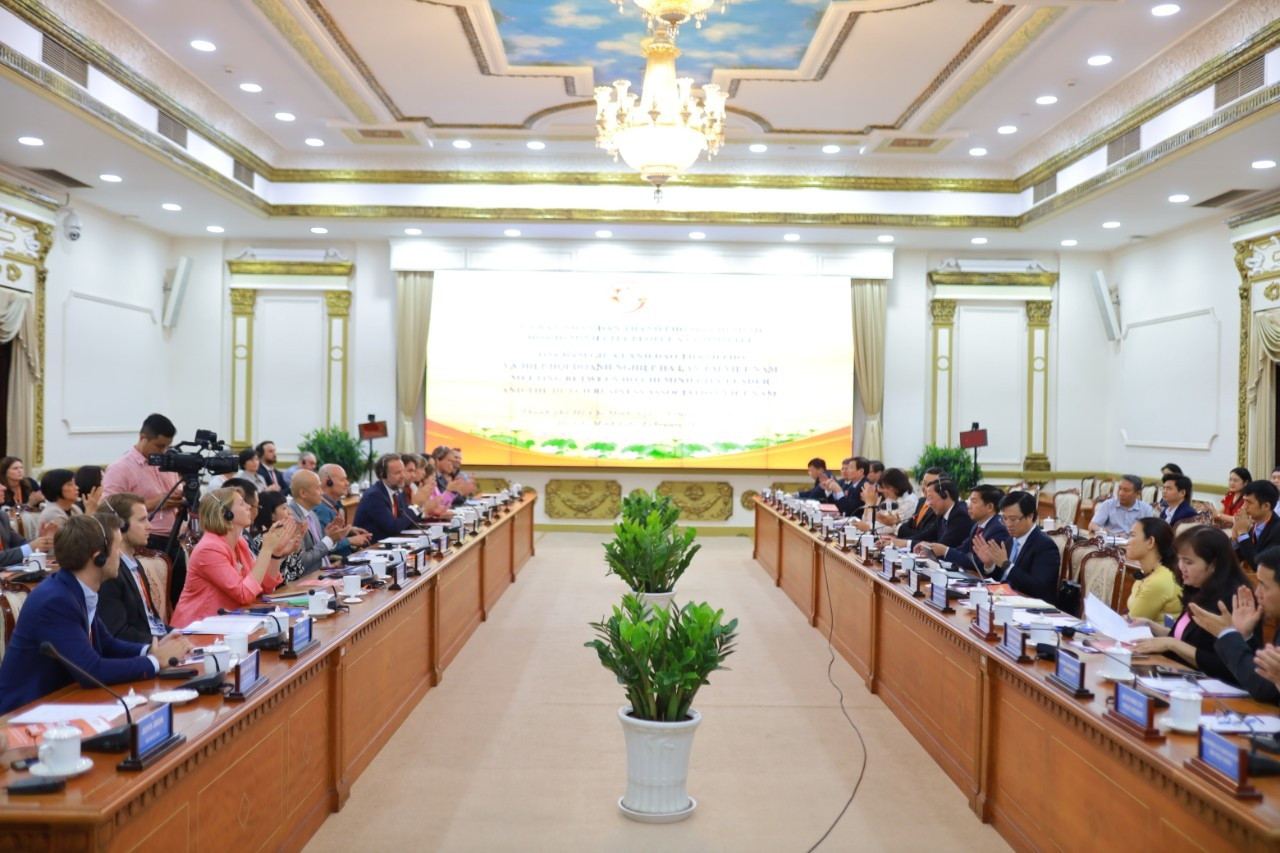Approximately $1.2 billion could be invested in Vietnam by the Dutch business community in the coming year, according to the Dutch Business Association Vietnam (DBAV).
“Most of the investment is coming from existing companies, but some are new to Vietnam”, said Guido Van Rooy, the group’s executive director.
“We want to come to Vietnam because our customers have a presence here. We have already provided some services and want to build a facility in Ho Chi Minh City,” said Henk Jan Jonge Poerink, vice president for Southeast Asia at the Dutch company BESI.
 |
| A Dutch delegation met with Ho Chi Minh City's authorities on February 28 |
According to DBAV’s Orange Business Book, climate fund managers asked to invest approximately $190 million to create energy from waste, treat and reuse wastewater, and supply clean water.
Shire Oak Energy expects to make a long-term investment of approximately $120 million at today’s cost levels over the coming two years, which would result in over 140 megawatts.
Meanwhile, Damen Song Cam Shipyard is building plans to invest an additional $25 million in Haiphong City.
It is estimated that the total accumulated investment from the Netherlands to date is $5 billion.
“Dutch businesses have much expertise to offer in terms of electric vehicles (EVs) and EV charging. However, Ho Chi Minh City needs to provide policy support to make EV adoption feasible, such as a rapid build out of charging stations and offers of parking incentives, priority access to city centres, and toll-free transit for EV drivers”, said Phuc Nguyen, DBAV's observing chairman.
To create a favourable investment environment, he suggested extending visa exemptions to 30 days for citizens from all EU member countries, solving the issues of work permit applications and renewals for expats, and leveraging technology to enhance administrative procedures.
He also urged the city to invest in transportation infrastructure, improve air quality, and control the noise, all while incentivising environmentally friendly measures such as energy-efficient buildings, recycled packaging, and eco-friendly materials.
Source: VIR